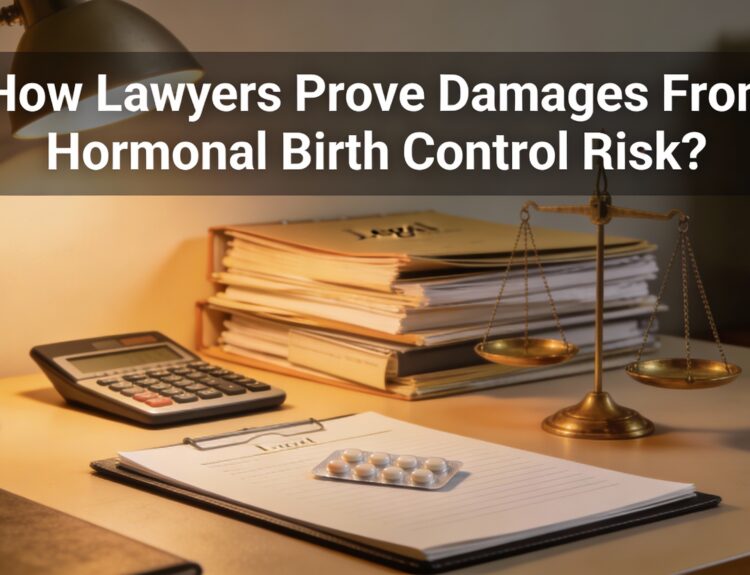Getting hurt at work can be a scary and confusing experience. You might worry about your health, your job, and how you’ll pay your bills. That’s where workers’ compensation comes in.
Workers’ compensation is a type of insurance that most employers must have. It helps workers who get hurt or sick because of their jobs. The main idea is to protect both workers and employers. Workers get help with medical bills and lost wages without having to sue their employer. Employers are protected from lawsuits related to workplace injuries.
Contents
How Workers’ Compensation Works
While the specifics vary from state to state, the general principles of workers’ compensation are relatively consistent:
Injury or Illness: First, a worker gets hurt or sick because of their job. This could be a sudden accident, like falling off a ladder, or a problem that develops over time, like carpal tunnel syndrome from typing.
Notice to Employer: The worker needs to tell their employer about the injury or illness as soon as possible. There’s usually a time limit for doing this, often within 30 days.
Filing a Claim: The employer should give the worker forms to fill out for a workers’ compensation claim. If they don’t, the worker can get these forms from the state workers’ compensation board.
Benefits: If the claim is accepted, the employee may be entitled to a variety of benefits, including:
- Medical Expenses: Workers’ comp pays for necessary medical treatment related to the work injury.
- Lost Wages: If you can’t work because of your injury, you can get some of your lost wages.
- Vocational Rehabilitation: If you can’t return to your old job, you might get help learning new job skills.
- Disability Benefits: If your injury causes long-term or permanent problems, you might get additional benefits.
- Death Benefits: If a worker dies because of a job-related injury or illness, their family might get benefits.
What Does a Workers’ Compensation Attorney Do?
A workers’ compensation attorney can:
- Explain your rights and options: The laws can be complicated. A lawyer can help you understand what you’re entitled to.
- Gather evidence and documentation: They can help collect medical records, witness statements, and other important information.
- File your claim and handle paperwork: They make sure all the necessary forms are filled out correctly and on time.
- Negotiate with the insurance company: Insurance companies often try to pay as little as possible. A lawyer can fight for fair compensation.
- Represent you at hearings and appeals: If your claim is denied, a lawyer can argue your case in front of a judge.
- Advise you on returning to work: They can help make sure you’re not pushed to return to work too soon.
- Help you explore other legal options: Sometimes, you might have other legal claims related to your injury.
When Do You Need a Workers’ Compensation Attorney?
While not every workers’ compensation claim requires an attorney, there are certain situations where legal representation is highly recommended:
- Your claim is denied or disputed: If the insurance company rejects your claim or offers less than you think you deserve, a lawyer can help fight for your rights.
- You have a pre-existing condition: If you had a health problem before your work injury, insurance companies might try to blame your current problems on that old condition. A lawyer can help prove your work injury is separate or made the old condition worse.
- You are facing a difficult return to work: If your employer is pressuring you to come back before you’re ready, or if they say they can’t accommodate your work restrictions, a lawyer can protect your rights.
- You have suffered a serious or catastrophic injury: For severe injuries that might affect you for a long time, it’s crucial to get all the benefits you’re entitled to.
- You are unsure about your rights or options: If you’re confused about the process or what you should do next, a lawyer can guide you.
Benefits of Hiring a Workers’ Compensation Attorney
Hiring a workers’ compensation attorney can offer numerous benefits:
- Increased chances of success: Lawyers know the ins and outs of the system and can help you avoid common pitfalls.
- Reduced stress and anxiety: Dealing with a work injury is stressful enough. A lawyer can handle the legal details so you can focus on getting better.
- Protection of your rights: Insurance companies and employers sometimes try to take advantage of workers who don’t know their rights. A lawyer makes sure you’re treated fairly.
- Maximized benefits: A good lawyer knows how to get you the most compensation possible under the law.
- Peace of mind: Knowing a professional is handling your case can give you peace of mind during a difficult time.
Choosing the Right Workers’ Compensation Attorney
When selecting a workers’ compensation attorney, consider the following factors:
- Experience: Look for dedicated workers’ compensation attorneys who have handled many cases like yours before.
- Reputation: Check online reviews and ask for references. A good lawyer should have satisfied clients.
- Communication: Choose a lawyer who explains things clearly and keeps you updated on your case.
- Comfort level: You should feel comfortable talking to your lawyer and trust their judgment.
Common Workplace Injuries
Workplace injuries can occur in any industry and can range from minor cuts and bruises to severe injuries that result in permanent disability or even death. Some of the most common workplace injuries include:
- Slips, trips, and falls: These can happen on wet floors, uneven surfaces, or cluttered walkways.
- Overexertion injuries: These occur from lifting, pushing, or carrying heavy objects.
- Repetitive motion injuries: These develop over time from repeating the same motions, like typing or using tools.
- Falling objects: Workers can be hurt by things falling from shelves or higher levels.
- Machinery accidents: These can involve getting caught in or struck by equipment.
- Vehicle accidents: These can happen to workers who drive as part of their job.
- Exposure to harmful substances: This includes chemical burns, lung problems from breathing in toxic fumes, or long-term illnesses from exposure to dangerous materials.
Tips for Preventing Workplace Injuries
While accidents can happen, many workplace injuries can be prevented with proper safety measures:
- Proper training: All workers should be trained on how to do their jobs safely and how to use any necessary equipment.
- Regular safety inspections: Workplaces should be checked often for potential hazards.
- Maintenance of equipment: All tools and machinery should be kept in good working order.
- Use of personal protective equipment (PPE): This includes things like hard hats, safety glasses, and gloves when necessary.
- Ergonomic workstations: Desks, chairs, and equipment should be set up to reduce strain on the body.
- Safe lifting techniques: Workers should be taught how to lift heavy objects properly to avoid back injuries.
- Good housekeeping: Keeping work areas clean and organized can prevent many accidents.
- Reporting of hazards: Workers should be encouraged to report any safety concerns they notice.
Conclusion
Workers’ compensation is an important system that helps protect workers when they’re injured on the job. While the process can be complicated, understanding your rights and knowing when to seek help can make a big difference. If you’re dealing with a work-related injury or illness, don’t hesitate to reach out to a workers’ compensation attorney for guidance. They can help ensure you get the care and compensation you deserve, allowing you to focus on your recovery and getting back to work when you’re ready.




